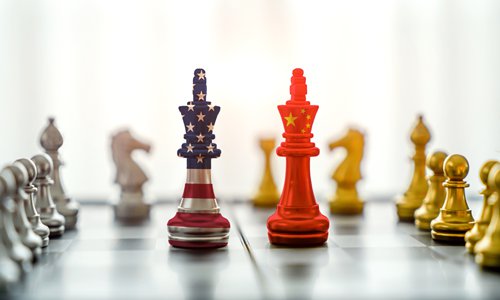Real portrayal of Chinese factory in Obama film

Photo: Global Times
American Factory, the first documentary released by Barack and Michelle Obama's production company jointly with Netflix, is a good movie. I say so not only because I liked it but because all my friends, Chinese and Americans alike, liked it too. The movie also received a 96 percent rating on movie ratings site Rotten Tomatoes and 8.5 out of 10 on Douban, a Chinese rating network.
Amid the escalating trade dispute between China and the US, let alone many other issues dividing views, unanimous cheers like this are almost a mission impossible for a movie about nothing but cultural conflicts.
The film tells the story of how Chinese and American managers and workers at a Chinese-owned glass manufacturing company, Fuyao's factory in Dayton, Ohio, deal with their cultural differences when they have to work together under the one roof.
Some of these are light and amusing moments that are caught by the camera, such as when the Chinese workers flexed their muscles for pistol shooting introduced to them by their American colleagues, and the American managers watching in awe at the military style of staff training in the company's headquarters in Fuqing, East China's Fujian Province.
Some are merely comical fumbles lost in translation. An American security guard proofread the brand new slogan "Marching Forward to Become World" hung in the hallway of the building of the Dayton factory and pointed out the word "the" was missing; an American manager complained about the laziness of American workers in Chinese, and the word "laziness" was taken as "bad" by his Chinese colleague thanks to the American's perfect pronunciation with an imperfect tone.
But others are serious issues - such as workplace safety, discrimination and unionization. These issues are rarely problems in Fuyao's factories in China but have been haunting the company since 2014 when it first acquired factories in the US. Indeed, the main thread of the film, the battle between Fuyao's management and its American workers over organizing, has been so well documented by American media in recent years that there were almost no details about the fight in the film that I had not heard before.
But, Steven Bognar and Julia Reichert, the film's award-winning directors, have done a fabulous job in telling the story from an impartial and human perspective.
In the film, everyone, whether Chinese or American and from the managers to workers, are portrayed as genuine human beings who, instead of trying to promote their suspicious ideology or stretch their sinister ambition to topple others, are merely doing what all humans naturally do to maximize their personal interests and improve their quality of life. There are friendships and clashes, but the ending made it clear that automation rather than unions, management or cultural differences, is the enemy of all the workers.
Kudos to the directors aside, the film's success would have been impossible without another major factor, Fuyao's openness. The company allowed the crew what seems to be unrestricted access to their workers and managers on both sides and to their internal meetings regarding sensitive topics, a rare glimpse a Chinese entity would offer to American media.
Certainly, not every detail in the film benefits Fuyao. The company complained about the film when a high-ranking Chinese-American manager was caught on camera admitting that the company had fired some pro-unionization workers. Still it is a fair presentation in which the Chinese are humans just like the Americans, and the message that, despite everything else, the Chinese provide job opportunities to the unemployed American workers, is conveyed well. The Chinese scored in a credible way.
But can you imagine if Fuyao didn't trust the American directors and tried to deceive or mislead them or inundated them with waxy propaganda, and all of this was documented and presented to the viewers?
The first time I met Cao Dewang, chairman of Fuyao, was when he spoke at a conference organized by the National Committee on US-China Relations in 2015, not long after the company reopened the factory in Dayton, a plant that was shut down by its former owner General Motors. He told the audience in the speech that "to invest in the US, you have to love this country first."
I don't know whether this "love" is just part of the business strategy, but it seems clear to me that Cao knows how to play by American rules to achieve his own goals.
In the film, despite his firm opposition to unionization from the beginning, he is not a greedy Chinese bully but an entrepreneur who has his resolve, reflection and moral dilemma. He said in the film that to invest in the US, he wanted to change Americans' perceptions of China and Chinese people. He is one step closer to the goal by being "transparent," the key word in the company's song that reflects its attitude to both its own products and to the world.
This should be the takeaway for whoever has goals similar to Cao's.
The author is a New York-based journalist and Alicia Patterson fellow. rong_xiaoqing@hotmail.com
